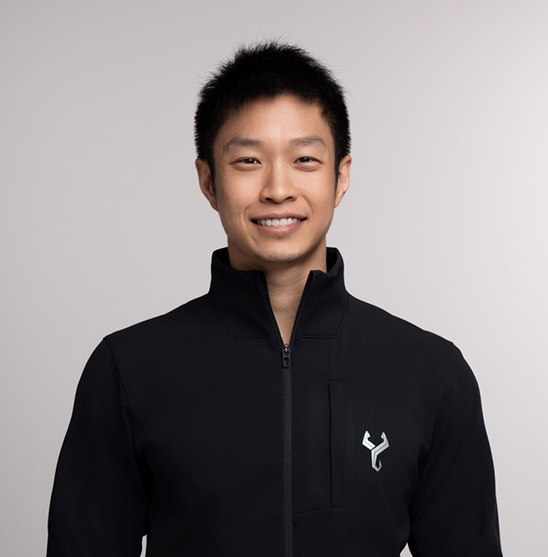How do electric vehicles – and an organizational culture of innovation and creativity – contribute to sustainable smart cities?
In the fast-paced world of electric motorcycles, Scorpio Electric stands out for its innovative and future-ready approach.
How do electric vehicles contribute to a sustainable and smart city? How should organizations develop a culture of innovation to become contributors to smart and sustainable cities of the future?
DigiconAsia sought out some answers from Joshua Goh, CEO, Scorpio Electric and Dr Taureza, Head of Engineering, Scorpio Electric.


Does electric mobility really contribute to safer transportation systems, sustainability and smart cities? How and in what ways?
Taureza: Electric mobility has a significant and far-reaching impact on various aspects of modern transportation systems, sustainability efforts, and the development of smart cities.
To begin with, electric vehicles (EVs) have emerged as a game-changer by producing absolutely no tailpipe emissions. This characteristic not only aids in curtailing air pollution but also contributes to the enhancement of air quality. Consequently, this positive effect creates safer and healthier environments for everyone.
Furthermore, the shift towards EVs holds the potential to substantially decrease greenhouse gas emissions, serving as a pivotal strategy in the battle against climate change. This transition aligns with the broader goal of fostering sustainable transportation alternatives, thereby fostering a more eco-friendly future.
Beyond its environmental benefits, electric mobility also plays a crucial role in the establishment of smart cities. Through the integration of EVs into smart grid systems, a novel approach to charging and energy management is facilitated. This innovative approach helps balance energy demand and supply, making cities more resilient and efficient.
Moreover, EVs are seamlessly connected to intelligent transportation systems, furnishing real-time traffic data and enabling superior route planning. As a consequence, this interconnectedness leads to reduced traffic congestion and ultimately contributes to the creation of safer road conditions. 2.
What do you envision the future of electric mobility would be like, and what developments will help to shape this future?
Goh: The future of electric mobility is filled with promising opportunities. With the continuous progress of technology, we can anticipate significant enhancements in battery technology, resulting in expanded driving ranges and quicker charging durations for EVs.
These advancements in battery technology will also pave the way for improved energy storage solutions, enabling smart grids to achieve even greater levels of efficiency. This, in turn, will facilitate the seamless integration of renewable energy sources, contributing to a more sustainable energy landscape.
Aiming to capture the interest of environmentally conscious early adopters in urban settings, Scorpio Electric has embarked on a mission to craft distinctive electric motorcycles. Through this endeavor, the company aims to redefine the very essence of electric motorcycles, creating a source of excitement for our followers.
What challenges do you foresee for the electric vehicle industry, and how do you and your organization intend to address them?
Taureza: Despite the numerous advantages associated with EVs, the industry encounters several noteworthy challenges. One significant concern revolves around range anxiety, a phenomenon experienced by certain consumers due to the restricted driving distance of certain EV models.
To tackle this issue effectively, it becomes imperative to ensure the establishment of a robust charging infrastructure and to make continuous advancements in battery technology.
Another obstacle that comes into play is the initial high price point of EVs when compared to traditional internal combustion engine counterparts. Nonetheless, the ongoing progress in manufacturing techniques coupled with the benefits of economies of scale is projected to gradually diminish production costs, ultimately enhancing the affordability of EVs and broadening their appeal to a wider consumer base.
In response to these formidable challenges, Scorpio Electric stands firmly committed to a path of constant research and development. We are striving to improve battery efficiency and overall vehicle performance.
Innovation and creativity are keys to being future-ready in a world of constant change and uncertainties. As the CEO, how do you foster innovation and creativity within your organization?
Goh: As the CEO, I firmly believe that nurturing innovation and fostering creativity hold paramount importance for ensuring our organization’s success in an ever-evolving world. Within our company, we cultivate a culture of openness and inclusivity, cherishing the input of every team member’s ideas. We facilitate regular brainstorming sessions designed to stimulate creative thinking and effective problem-solving.
Furthermore, we are strong advocates of continuous learning, motivating our employees to stay abreast of the latest industry trends and technological advancements. Our commitment to progress is evident through substantial investments in research and development, empowering our team to explore novel ideas and inventive solutions within the realm of electric mobility.
In addition, we proactively seek out partnerships and collaborations with startups, research institutions, and technology firms, leveraging external expertise to infuse our organization with fresh viewpoints and insights.
Through our unwavering dedication to fostering an atmosphere of innovation and creativity, we are resolutely positioned to remain leaders within the electric mobility industry. Our primary aim is to provide cutting-edge solutions for sustainable transportation.
